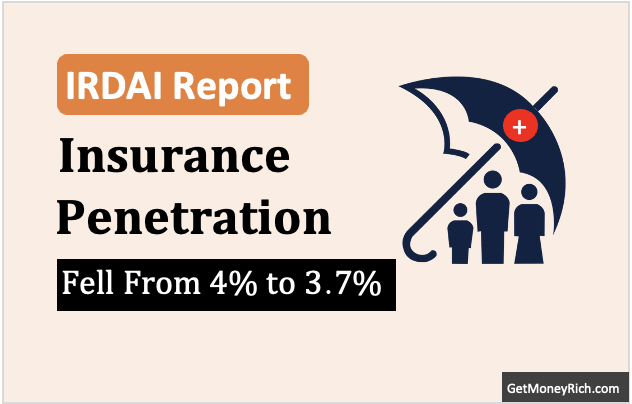Retirement planning can feel like a complex maze, especially when it comes to understanding Social Security and Medicare. The situation becomes even trickier when one spouse has a strong work history while the other has had limited work experience. But don’t worry, you’re not alone in this situation. The goal of this post is to help one see through through the confusion. We’ll focus on couples where one spouse has a solid earnings record, and the other spouse either didn’t work or didn’t earn enough to qualify for substantial Social Security benefits on their own.
Understanding the Basics
Let’s briefly go over the key elements of Social Security and Medicare.
Social Security, at its core, is a federal insurance program designed to provide retirement, disability, and survivor benefits. The benefits you receive are directly tied to your earnings record during your working years.
The things is, the more you paid in, the more you potentially receive.
Then there’s Medicare, a federal health insurance program primarily for people 65 or older. It’s divided into four parts:
- Part A, which covers hospital stays;
- Part B, which covers doctor’s visits and outpatient care;
- Part C (Medicare Advantage), offered by private insurers and bundled with extra benefits; and
- Part D, which helps with prescription drug costs.
The Scenario: One Spouse’s Strong Earnings Record
Consider Sarah, who dedicated 35 years to her career, earning a solid salary.
Meanwhile, David devoted himself to raising their children and managing their home. He contributed in valuable but non-tradition work that didn’t yield traditional social security credits.
This is a very common scenario.
Social Security Spousal Benefits
Thankfully, Social Security recognizes these diverse family arrangements. Even if David has a minimal work history, he’s very likely eligible for something called “spousal benefits” based on Sarah’s earnings record.
Basically, David can receive up to 50% of Sarah’s primary insurance amount (PIA). This is what the benefit she would receive if she claimed at her full retirement age (FRA).
David can start receiving spousal benefits as early as age 62. But remember, claiming before his FRA will reduce the benefit amount he receives each month.
And here’s a crucial point, if David does qualify for benefits on his own work record and the spousal benefit is higher, he’ll receive the higher amount.
Social Security essentially “tops up” his own benefit to reach the spousal benefit level. So, he never gets both benefits stacked on top of each other.
Imagine Sarah’s PIA at her FRA (67) is $2,800. David could potentially receive $1,400 (50% of $2,800) as a spousal benefit, assuming he waits until his full retirement age. If he claims at 62, it would be less.
Medicare Eligibility
For Medicare, the rules are slightly different.
Most people qualify for premium-free Part A if they or their spouse paid Medicare taxes for at least 10 years (40 quarters) of work.
In our example, because Sarah worked for 35 years. Hence, David should automatically be eligible for premium-free Part A when he turns 65. If Sarah had worked for a shorter time and didn’t meet the 40-quarter requirement, David might still be eligible if either of them had sufficient work history. If not, he can still enroll in Part A, but he would have to pay a monthly premium.
As for Medicare Part B (medical insurance), everyone pays a monthly premium, regardless of their or their spouse’s work history.
How Sarah’s Age Affects David’s Benefits
Here is an important point to remember.
David cannot receive spousal benefits until Sarah starts taking her retirement benefits.
His spousal benefits are tied to her claiming decision. Also, even if Sarah decides to delay her benefits past her full retirement age, it will not increase David’s spousal benefit.
He would still be limited to 50% of Sarah’s PIA.
Claiming Strategies
Choosing when each spouse claims Social Security can really change the overall benefits they both receive.
If Sarah decides to claim early (anytime between 62-66), her monthly payment will be reduced. And this has a knock-on effect on David too, because his spousal benefit will also be lower, since its based on the reduced payments of Sarah.
If Sarah claims at her FRA (Full retirement age – age 67), she would receive her full PIA (Primary Insurance Amount) and David could get 50% of this if he decides to take spousal benefits.
If Sarah delays claiming (up to age 70), her benefits increase by 8% for every year she delays. However, this does not affect David’s spousal benefits.
Scenario Analysis: Weighing Early vs. Delayed Claiming
So, what does this all mean in practice? Let’s think through a few scenarios:
- Scenario 1: Immediate Needs: If Sarah and David need the income as soon as possible, Sarah claiming at 62 might be necessary. This provides immediate cash flow, but reduces their overall lifetime benefits.
- Scenario 2: Maximizing Lifetime Benefits: If Sarah can afford to wait, delaying claiming until age 70 will maximize her individual benefit. Even though David’s spousal benefit doesn’t increase, Sarah’s higher benefit provides greater financial security for the long run, especially if she outlives David.
- Scenario 3: Considering Longevity: If either spouse has health concerns that might shorten their lifespan, claiming earlier might be more beneficial to receive more benefits overall.
Actionable Insights
- Get Your Social Security Statement: Visit the Social Security Administration’s website (ssa.gov) to create an account and access your Social Security statement. This shows your estimated benefits at different claiming ages.
- Estimate Your Expenses: Determine your anticipated retirement expenses. This will help you understand how much income you’ll need from Social Security and other sources.
- Consider Your Health and Life Expectancy: Honestly assess your health and family history of longevity. This is crucial for deciding when to claim.
- Consult a Financial Advisor: Seriously consider consulting a financial advisor specializing in retirement planning. They can run detailed projections and help you make informed decisions tailored to your specific circumstances.
- Don’t Forget Medicare: Even if you’re covered by your spouse’s health insurance, understand Medicare eligibility and enrollment periods to avoid penalties.
Real-Life Implications:
Social Security and Medicare are very complex. The “best” strategy is very specific to your circumstances.
However, by understanding how the rules work will help. Think hard about your financial needs, and seek advice from a professional. This way you can make smarter decisions that lead to financial security and peace of mind in your retirement.
I hope you enjoyed reading this piece. I would appreciate your feedback. Post it in the comment section below.


